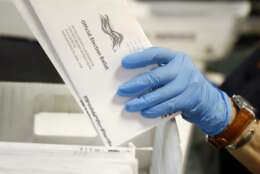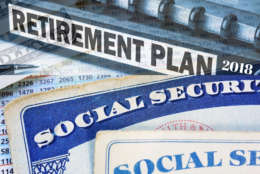Mike Causey
-
Every year thousands of federal workers turn down an extra 1%-4% or more contribution from the government to their TSP account because they can't afford it.
September 22, 2020 -
The Thrift Savings Plan will start quietly nudging new participants to contribute more of their income toward their retirements -- by doing it for them.
September 21, 2020 -
So many of my former sources' kids are now in the market, I'm declaring a trend.
September 18, 2020 -
It's popular, maybe even comforting, to say that the ongoing worldwide panic has put us all in the same boat. Were all in this together and all that! Comforting, maybe. Not really true.
September 16, 2020 -
Some savvy investors say the President has a major impact on the economy and the stock market. Others say events -- not whoever is elected POTUS in November -- will determine whether your Thrift Savings Plan languishes or takes off like a rocket over the next four years.
September 16, 2020 -
Normally this time of year, the issue of a federal pay raise in the following January is sort of a big deal.
September 15, 2020 -
The board that oversees the Thrift Savings Plan will have a few new members in the coming weeks and months. They'll eventually pick up the debate over the international fund -- and whether to throw China in the mix.
September 14, 2020 -
The deferral plan won't save anybody one dollar and will come back to bite people who spend their windfalls
September 11, 2020 -
Given the choice, would you take a reduced CSRS or FERS annuity later — for life — if it meant you could telework from the geographic location of your choice?
September 10, 2020 -
For better or worse, the country is slowly beginning to re-open, so for many feds, whether long-time or relatively new, the question is -- what now?
September 09, 2020 -
When do you tell tens of thousands of public servants, from Social Security, the IRS and a dozen other operations, that after several months of working from home it's time to return to their “real” and traditional offices?
September 08, 2020 -
The number of new claims received last month dropped while the number of claims processed also decreased in August, according to monthly data from Office of Personnel Management.
September 07, 2020 -
A 1% federal pay raise for civilian employees looks more likely with every passing day. But when it comes to next year's paycheck, the president's planned payroll tax deferral throws a wrench into things.
September 07, 2020 -
Executives in large agencies use surveys to take the pulse of their workforces.
September 04, 2020 -
Fortunate federal retirees, like people who get Social Security, usually get a catchup-with-inflation increase in their benefits the first of each year.
September 03, 2020













